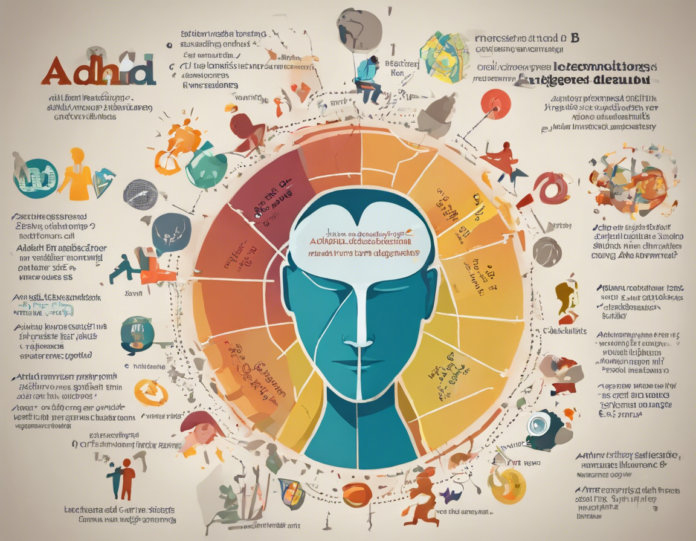Attention deficit hyperactivity disorder (ADHD) is a neurodevelopmental disorder that affects both children and adults. It is characterized by symptoms such as inattention, impulsivity, and hyperactivity, which can impact various aspects of daily life. Diagnosing ADHD involves a comprehensive evaluation by a healthcare professional to determine if an individual meets the criteria outlined in the Diagnostic and Statistical Manual of Mental Disorders (DSM-5). In Tamil Nadu, as well as in other regions, it is important to understand the process of diagnosing ADHD to ensure accurate identification and effective management of the condition. In this article, we will explore the key aspects of ADHD diagnosis in Tamil, including the symptoms to look out for, the assessment process, and the available treatment options.
Symptoms of ADHD in Tamil
Inattention
One of the primary symptoms of ADHD is inattention. Individuals with ADHD may have difficulty sustaining focus on tasks, following through with instructions, organizing tasks and activities, and often seem to be forgetful in daily activities.
Hyperactivity
Hyperactivity is another hallmark symptom of ADHD. People with ADHD may seem restless, fidgety, and have difficulty sitting still for extended periods. This can manifest as excessive talking, squirming in their seats, and an inability to engage in quiet activities.
Impulsivity
Impulsivity is another key feature of ADHD. Individuals may act without thinking about the consequences, interrupt others, and have difficulty waiting their turn in conversations or activities.
Assessment Process for ADHD Diagnosis
Screening Questionnaires
Healthcare professionals often begin the ADHD diagnosis process by using screening questionnaires to gather information about the individual’s symptoms and functioning. These questionnaires may be filled out by the individual, their parents, teachers, or other caregivers.
Medical History and Physical Examination
A comprehensive medical history and physical examination are essential parts of the ADHD assessment process. This helps rule out other medical conditions that may be causing or contributing to the symptoms.
Behavioral Observations
Observing the individual’s behavior in different settings, such as at home, school, or in social situations, can provide valuable insights into their symptoms and how they impact daily functioning.
Consultation with Multiple Sources
To ensure an accurate diagnosis, healthcare professionals may consult with multiple sources, including parents, teachers, and other relevant individuals who can provide information about the individual’s symptoms and behavior.
Treatment Options for ADHD
Medication
Medication is a common treatment option for ADHD and can help manage symptoms such as inattention, hyperactivity, and impulsivity. Stimulant medications, such as methylphenidate and amphetamines, are often prescribed to help improve focus and impulse control.
Behavioral Therapy
Behavioral therapy, including cognitive-behavioral therapy and behavioral interventions, can help individuals with ADHD learn coping strategies, improve organizational skills, and address specific challenges related to their symptoms.
Parent Training
Parent training programs can be beneficial for parents of children with ADHD. These programs provide education on ADHD, teach effective parenting strategies, and help parents manage their child’s behavior more effectively.
Educational Support
Individuals with ADHD may benefit from educational support in the form of accommodations at school, such as extra time on tests, preferential seating, or access to educational resources that can help them succeed academically.
Frequently Asked Questions (FAQs) About ADHD Diagnosis
1. How is ADHD diagnosed in Tamil Nadu?
ADHD is diagnosed in Tamil Nadu through a comprehensive evaluation that may include screening questionnaires, medical history, physical examination, behavioral observations, and consultations with multiple sources.
2. What are the common symptoms of ADHD in Tamil-speaking individuals?
Common symptoms of ADHD in Tamil-speaking individuals include inattention, hyperactivity, and impulsivity, which can impact various aspects of daily life.
3. Can adults in Tamil Nadu be diagnosed with ADHD?
Yes, adults in Tamil Nadu can be diagnosed with ADHD. The diagnostic criteria for ADHD apply to individuals of all ages, and adults may also benefit from assessment and treatment.
4. Are there specific cultural considerations to keep in mind when diagnosing ADHD in Tamil individuals?
Cultural considerations, such as language barriers, stigmatization of mental health disorders, and beliefs about ADHD, may impact the diagnosis and treatment of ADHD in Tamil individuals, highlighting the need for culturally sensitive approaches.
5. What role do parents and teachers play in the ADHD diagnosis process?
Parents and teachers play a crucial role in the ADHD diagnosis process by providing valuable information about the individual’s symptoms, behavior, and functioning in different settings. Their input helps healthcare professionals make an accurate diagnosis and develop an effective treatment plan.
In conclusion, ADHD diagnosis in Tamil Nadu involves a comprehensive evaluation that considers the individual’s symptoms, medical history, behavior, and input from multiple sources. By understanding the key aspects of ADHD assessment and treatment options, individuals, parents, and healthcare professionals can work together to support those affected by ADHD in the Tamil-speaking community.
